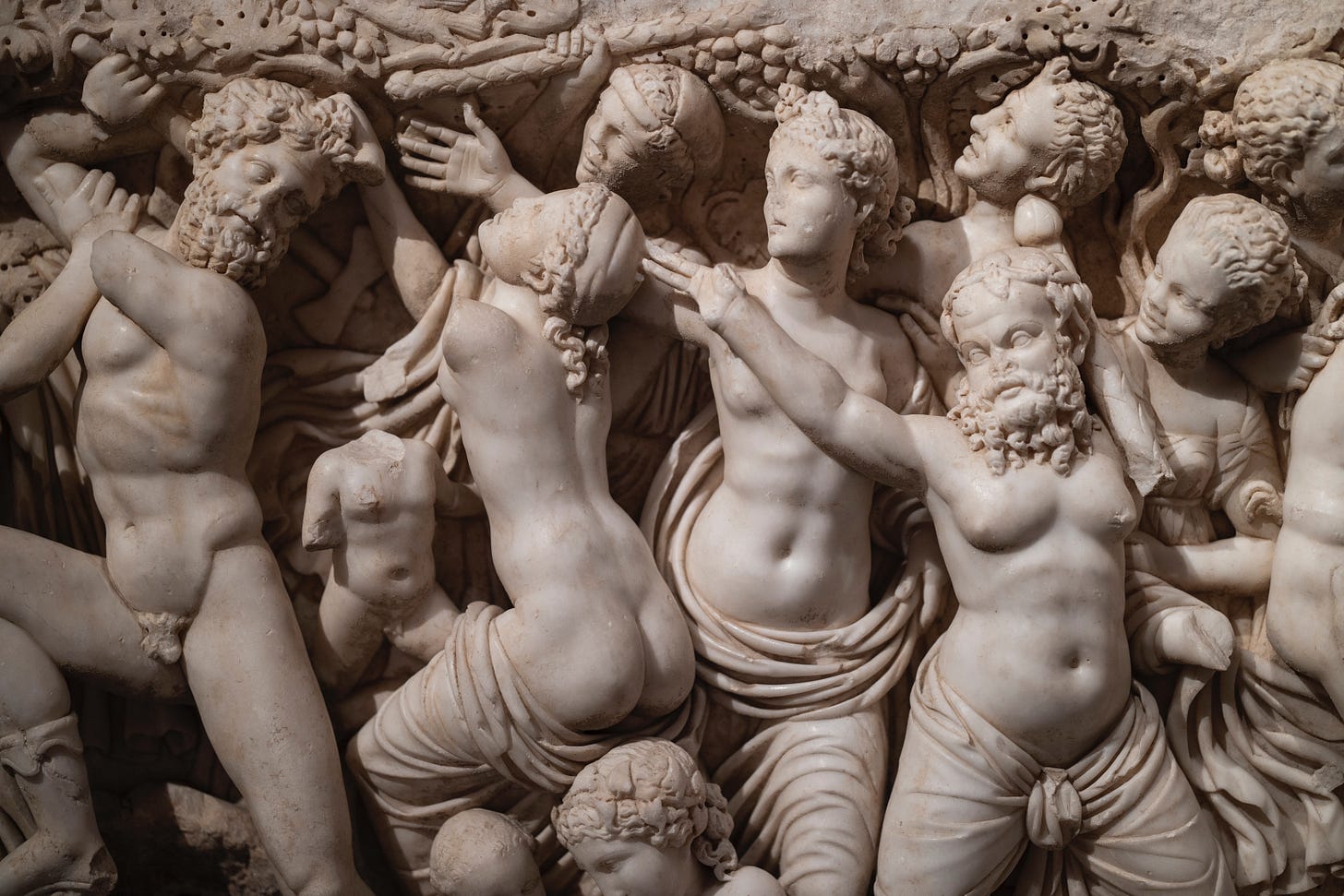Shedding the fear of death
and stepping into truly living
Photo by engin akyurt on Unsplash
More than 30 years ago, the famed psychedelics-assisted therapist Ann Shulgin wrote about an experience she had had more than 30 years prior to that — her very first psychedelic journey when she was in her 20s. Ann and a friend were milling about in San Francisco’s Golden Gate Park when...
“We stopped and looked around us at the earth, the sky and each other, then I saw something forming in the air, slightly above the level of my head. I thought that it was perhaps a few feet from me, then I realized I couldn’t actually locate it in space at all. It was a moving spiral opening, up there in the cool air, and I knew it was a doorway to the other side of existence, that I could step through it if I wished to be finished with this particular life I was living, and that there was nothing threatening or menacing about it; in fact, it was completely friendly. I also knew that I had no intention of stepping through it because there was still a great deal I wanted to do in my life, and I intended to live long enough to get it all done. The lovely spiral door didn’t beckon; it was just matter-of-factly there.
Any fear I might have had of death, of the actual crossing of the border, was left behind at that moment. I was seeing the way through, and there was nothing to be frightened of. As I gazed up at the energy-charged patch of sky, I was again aware of being unsurprised, because some part of me remembered this.
I still have the fear of dying before I have done all I want to, but I have no fear of the journey itself, nor of what lies on the other side of that opening. I know that when I get there, I will recognize the territory very well indeed, and that it will be truly a returning home.” — Ann Shulgin, [PiHKAL, p. 129]
I have had similar experiences myself, and have facilitated many clients through the same. As is the case in these experiences, words fail to adequately describe the experience itself.
Some have a more intense, “ego death” experience followed by the bliss that Shulgin describes here. A kind of “death is imminent; there is no choice” experience followed by the joyous wonder of “still being alive, albeit in a different form.”
I believe that one’s relationship with death prior to the experience itself means everything here. The “ego death” and resulting fear are the aftershocks of the dismantling of a heavily imprinted construct.
Either way, if there is ever an experience that will completely change your worldview, this is it.
And reading about it just isn’t enough. It really must be experienced. For as the Buddhist saying goes, “the finger pointing toward the moon is not the moon”.
It’s true. The map is never the territory.
A truism the ancient Greeks know as well.
“If you die before you die you won’t die when you die”
That statement was chiseled into the stone above the entryway of the Elsusian temple in ancient Greece. It refers to the ancient Greek belief in the concept of the soul’s reincarnation. The ancient Greeks believed that the soul was immortal and that it could be reborn into a new body after death. Those initiates who visited Eleusis to participate in the Mysteries — a series of secret religious rites honoring the goddesses Demeter and Persephone — believed that by participating in these rites, they would be able to achieve a form of spiritual enlightenment. Thereby allowing them to enter a state of consciousness in which they could experience the divine, and by doing so, transcend the cycle of death and rebirth.
Not surprisingly, these initiates were leveraging substances as a bridge to the altered consciousness required to experience these revelations. In fact, these initiates were drinking the psychoactive brew known as kykeon which, like LSD, is derived from ergot.
According to Brian C. Murakesku, author of The Immortality Key, the statement "if you die before you die, you won't die when you die" was a way of expressing belief in the importance of achieving spiritual enlightenment and transcending the cycle of death and rebirth. "Dying before you die," refers to the process of achieving spiritual enlightenment and a state of consciousness in which one is able to encounter death and experience the divine. If one is able to navigate this process, they will not "die" in the traditional sense when they physically die, as their soul will have already achieved a state of enlightenment and will not need to be reborn into a new body.
The cycle of fear is broken. And absent the lingering fear of death, one can truly live life.
Peace,
Keith

